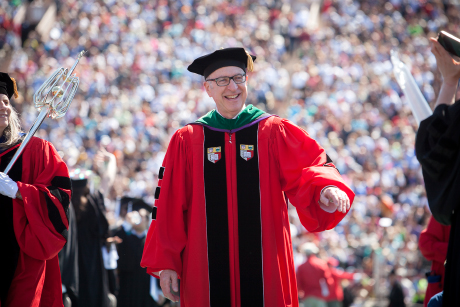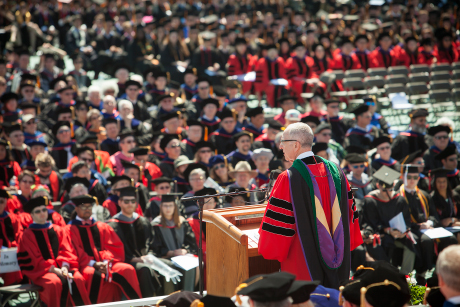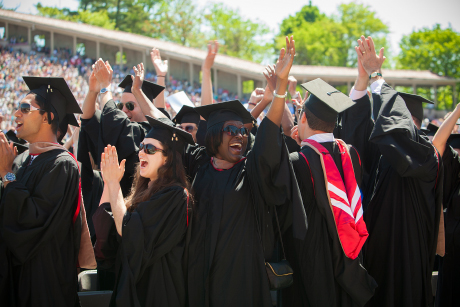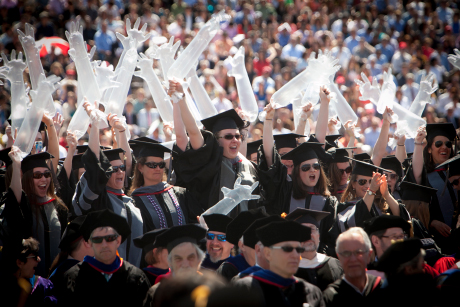'Build human capital,' Skorton tells 2014 graduates
By H. Roger Segelken




If any Cornell graduates were too immersed in exam-taking, paper-writing or class-going to notice how desperately the outside world needs their talents, energy and engagement, President David Skorton’s 2014 Commencement address May 25 in Schoellkopf Stadium was a call to action.
“Many in this country and around the world do not have the opportunities that will be available to you as graduates,” Skorton said.
On the 50th anniversary of President Lyndon Johnson’s War on Poverty, “the gap between rich and poor, in this country and elsewhere, has widened substantially,” said Skorton, citing a recent estimate that 50 million Americans live in poverty.
Graduates should take inspiration, the president said, from a new book by development sociology professor Thomas Hirschl, “Chasing the American Dream.”
“By investing in all of our people,” Hirschl and his co-authors wrote, “we begin to create what is known as a virtuous cycle. By strengthening the human capital and skills of our population, we allow more individuals to reach their capabilities and potential.”
Skorton – speaking before some 6,000 graduates and a Crescent-filling crowd of nearly 39,000 family and friends, enjoying sunny skies and temperatures in the mid-70s – urged all to embrace their roles in “reducing poverty and inequality by contributing to economic development and the job opportunities it creates.”
Graduates should engage “in the business world, or government or public service, including with the Peace Corps and Teach for America,” Skorton said, adding: “Virtually all of you will find your places in the knowledge economy, which relies on advanced skills and higher-order thinking of the kind you’ve developed and refined at Cornell.”
Of course not all graduates spent the last four years buried in textbooks. Many found time, as Skorton put it, to become “engaged in your communities, and your efforts are producing results.” He cited students who improved access to health care information on Native American reservations, published research on how diet relates to gene function, and started an organic cocoa teaching-and-research farm in Cameroon.
And now it’s everyone else’s turn, the president said, calling for a commitment “to wider engagement, which you’ve demonstrated during your time at Cornell. You can help build an economy that grows for everyone, help create a virtuous cycle and turn despair into greater opportunity for all.”
He also reminded the graduates: “Each of you starts the next portion of your life’s journey with the tremendous benefit of a Cornell education. I hope that you’ll carry with you after Cornell a continuing commitment to build human capital so that more will have opportunities to pursue their dreams.”
Media Contact
Get Cornell news delivered right to your inbox.
Subscribe